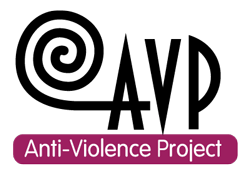
So, what is consent?
Consent is clear, communicated, enthusiastic, the responsibility of the initiator, ongoing, and can be renegotiated or withheld at any time. It means listening to each other, respecting each other, and bringing mindfulness to all our interactions. Practicing consent is an important step in creating a culture we want to live in. A culture in which people are respected and have autonomy, choice, agency, to decide for themselves what is best for them.
Consent has the potential to make our relationships more caring and meaningful, it has the potential to increase joy and pleasure. Consent often feels awkward when we first begin to practice it in our everyday lives and seek it from our intimate partners, peers, and family. This is because we don’t learn about consent or how to set and respect boundaries anywhere in our social culture, we don’t see it modeled on TV, in music, or on social media. Like a muscle that we are just learning to use, it will only get more comfortable and strong with practice.
Consent and Sex:
While consent is an everyday practice that has the potential to increase communication in all aspects of our lives, it can be particularly important to address consent when talking about engaging in sexual activities. At AVP we support and encourage folks to explore their sexuality in safe, exciting and consensual ways. An incredibly important part of exploring sexuality alone or with others is discussing safety, boundaries, and care. Everyone deserves boundaries and safety for themselves and those around them when and if they choose to engage in sex. Your first partner is you, by this we mean that knowing and exploring our own boundaries can involve a lifelong conversation and relationship with ourselves.
No one is responsible for fulfilling our sexual wants but ourselves. Wants consist of the things that we enjoy doing, turn us on, and give us pleasure. While it can be exciting and empowering to share these things with others and to experience ourselves in relation to intimate partners, other people are never responsible for fulfilling our sexual wants. Consent is essentially about open communication and respect, whether we are practicing it with someone we just met or with a longtime partner.
A Model for Consent – The 6 Elements:
Important notes
Want more information?
Attend one of our Understanding Consent Culture workshops that run regularly throughout the year. Our workshops are free and open to folks from our campus community and beyond.
We also have resources, a lending library and friendly staff that are happy to answer questions so, come talk to us!
If you are interested in learning about the ways that the University of Victoria defines consent in their Sexualized Violence Prevention and Response Policy you can check out their website.
